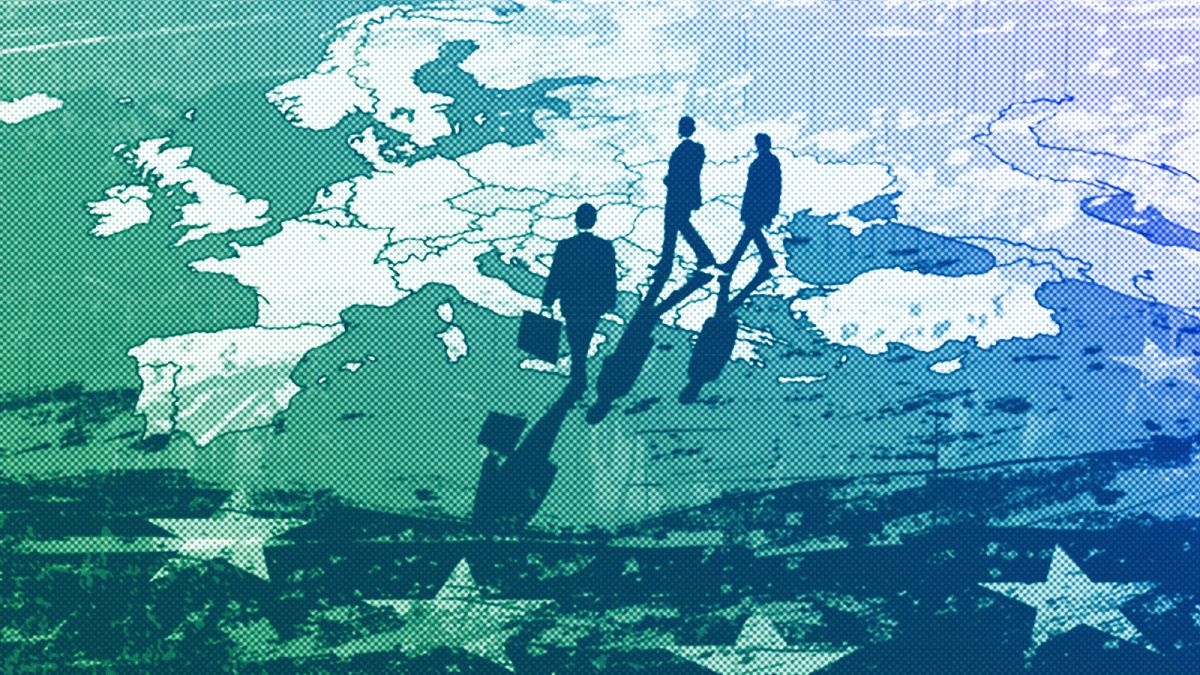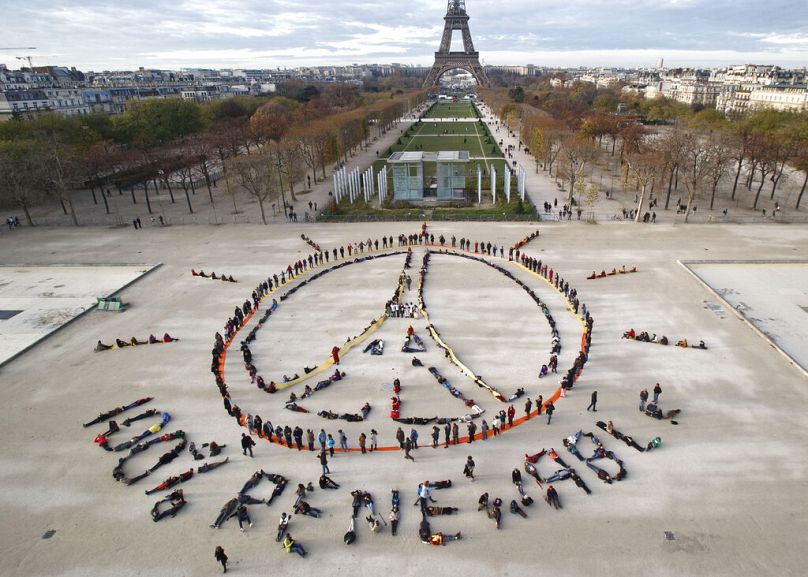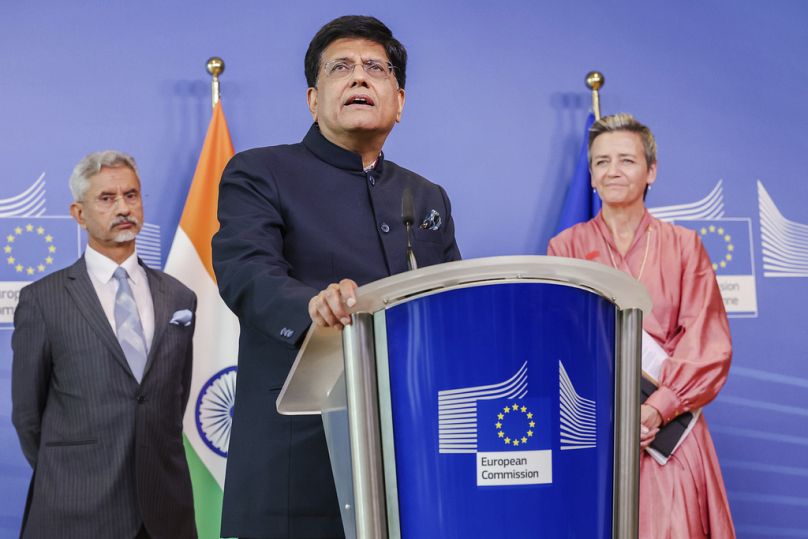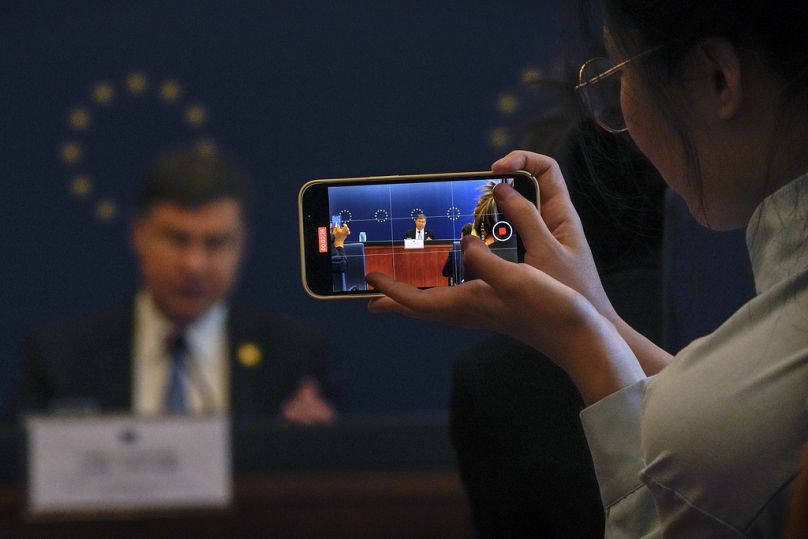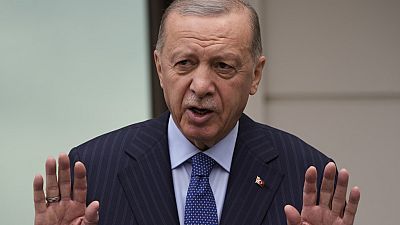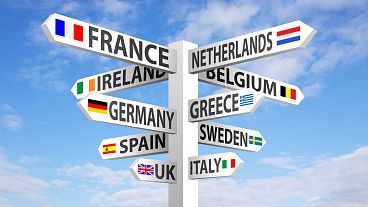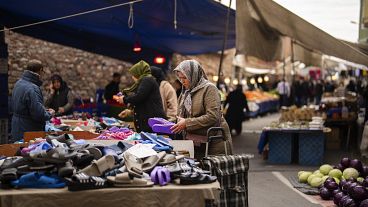As it finesses its strategy on trade, the EU needs to think how to moderate its sustainability agenda, which is proving too much for its trading partners to swallow, John Clarke writes.
For decades, the EU was reluctant to use trade agreements as a Trojan Horse for environmental and other “non-trade issues”.
Don’t mix trade with other issues. It's not a means to an end. “Render to Caesar what belongs to Caesar” was how one European Commissioner dubbed it.
That worked until the 1999 WTO Ministerial, where dockers, NGOs and unions conspired — egged on by the US — to destroy the Ministerial (as well as the window of Starbucks where I was sheltering from teargas) due to WTO’s apparent lack of care for environment, human rights or development.
The “Battle of Seattle” led to serious navel-gazing in Europe and elsewhere. Clearly, trade agreements, whether WTO or bilateral, could only pass muster with the European Council and Parliament if they supported sustainability, a term that crept into the EU trade lexicon in the late 1990s.
What happened next?
After the 2008 collapse of the WTO Doha Round, the EU went hell-for-leather for bilateral free trade agreements (FTAs), now totalling 40, covering 80 countries and half its trade.
More and more, these agreements include sustainability commitments. First, it was about soft cooperation on human rights, animal welfare, and environment. Increasingly, they involve harder obligations to respect COP21 climate commitments, implement key UN and ILO treaties, and after the UN 2021 Summit, coordinate on sustainable food systems.
The apotheosis was the EU-New Zealand FTA just now in force. Apart from standard rules on health and safety, it has chapters on food systems and sustainable development, committing parties to their respective zero emissions aims, human rights, animal welfare, environment, and biodiversity.
For the first time, these commitments are binding and subject to withdrawal of trade concessions if non-compliance.
For the first time in history, the European Parliament’s Agriculture Committee — not renowned for free trade— endorsed the agreement, as the template for future FTAs.
So is EU-NZ the future? No.
All the reasons why not
First, some — like Indonesia, Thailand, and even India — may worry they cannot meet the obligations, such as climate action, labour rights, or gender equality, and will not accept trade sanctions due to their inability to comply.
Second, some may simply not agree with the EU — e.g. on gender issues, animal welfare, or biodiversity.
Third, some may object to the imposition of “western” norms. India in the run-up to this year's elections is a good example. Can it defend an agreement regarding “sustainability with neocolonial overtones”?
In a recent interview, India's Commerce Minister Piyush Goyal said the environment should not be mixed with trade.
Is that hypocritical? Definitely. But likely to dictate India’s position both in WTO and in FTAs as long as Narendra Modi's Bharatiya Janata Party, or BJP, remains in power.
And finally, some EU partners, while capable of sustainability, may conclude that the EU’s demands are not worth the candle.
Take Australia, with whom EU FTA negotiations collapsed last autumn: EU concessions on beef and sugar were insufficient to persuade it to introduce obligations on animal welfare for beef production, or internationally certified sustainable sugar. Other FTA partners may conclude likewise.
Giving with one hand, taking away with the other
In his report last week on the future of the European Single Market, Enrico Letta has made exactly the same point: the EU’s sustainability agenda is proving too much for its trading partners to swallow.
So the EU needs to moderate its environment and climate agenda in trade policy, forego future FTAs — or fail even to establish cooperation with partners on a green agenda. Lose-lose, in trade parlance.
In his book “The Argumentative Indian”, Nobel Prize-winning philosopher Amartya Sen described India’s tradition of give and take and its “capacious readiness to accept the views of others”.
What Europe arguably needs is the same, be an “Argumentative European”, better understand the difficulties of developing country partners in respect of the climate and human rights and adjust.
To his credit, European Commissioner for Trade Valdis Dombrovskis in a speech in March implicitly recognised the case for moderating the FTAs to reduce their sustainability aims — so as to conclude them.
The EU complicated its trade agenda by introducing in parallel a swathe of green legislation applied to imports as well as domestic goods: CBAM, prohibition on forced labour goods (e.g. solar panels from Xinjiang), the — now postponed — regulation on supply chain due diligence; and a regulation on deforestation, banning the production or import of goods such as soya or beef that are associated with deforestation.
Although the motivation is noble — combating climate change — third countries are threatening dispute settlement in WTO.
The regulations themselves are certainly WTO-proof: the real test will be their implementation in the coming years.
One effect of these regulations is to make third countries suspicious about the EU’s purported Green Deal agenda on trade and confirm their worries that it will undercut the FTA concessions they negotiated hard to win.
It will be hard now for the EU to pursue a trade and environment agenda in WTO.
Farmers to the rescue?
Protests last month in Brussels complete the jigsaw. Farmers were protesting about poor farm gate returns (they are right), the cost of new environmental requirements; and dumped imports.
On this last point, they are wrong. Previously localised farm protests have now spread across the EU.
Something has to give. Trade agreements are not the cause of Europe’s farm stress — the EU is by far the world’s biggest agri-exporter and this will grow as the world population increases and as the middle classes opt for European quality and safety.
Long term, Europe’s agrifood prospects are good. But the EU needs to demonstrate to the agri community more convincingly the benefits of trade.
Short term, the EU must moderate the sustainability aspect of its FTAs agenda and engage with partners on climate and environmental challenges — of which farmers are the first victims. They are not just perpetrators. It’s about timing and expectation management.
And it needs evidence-based information on issues like the environmental or climate footprint of Brazilian beef (far less than the media might ask you to believe). Ditto palm oil from Indonesia or Nigeria. Or the impact of glyphosate.
Secondly, the EU must decide how far to press its Green Deal agenda in trade.
The EU's own backtracking means it cannot insist with partners on commitments it cannot deliver itself. A pragmatic approach, alien to Europe so far, is to accept second-tier agreements — not loaded with green baggage — with a promise to revisit once the time is ripe.
And last, the EU needs to think — as it finesses its strategy on trade — about the other pillars of sustainability: not just the environment, not just European farmers, but also developing country producers on whom we depend for our future food security. Sustainability has three pillars.
John Clarke is a former Director of International Relations at the European Commission. He was also Head of the EU Delegation to the WTO and UN in Geneva.
At Euronews, we believe all views matter. Contact us at view@euronews.com to send pitches or submissions and be part of the conversation.
